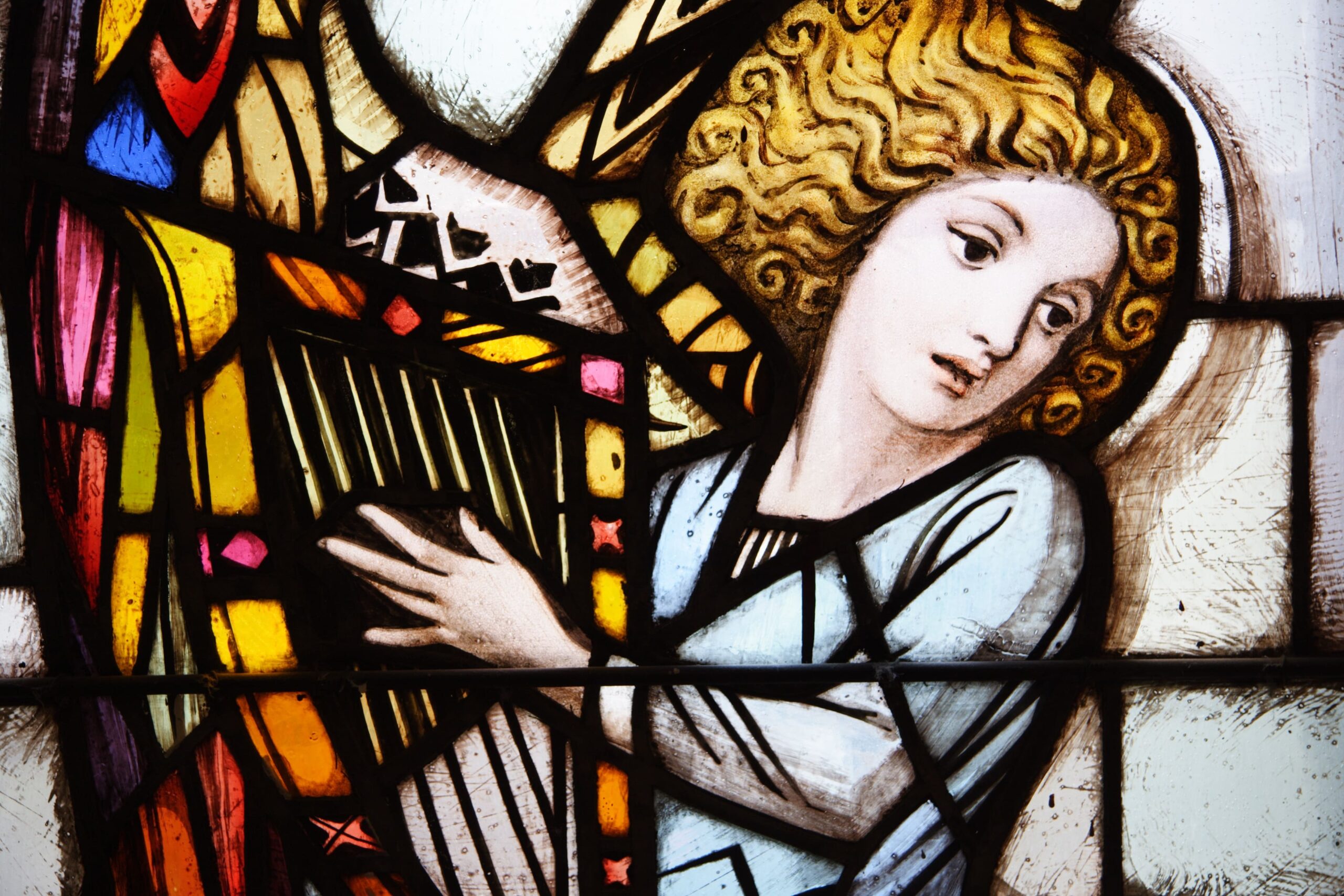Family Politics: The Idea of Marriage in Modern Political Thought
by Scott Yenor
(Waco, TX: Baylor University Press, 2011)
In this provocative intellectual history of the concepts of marriage and family, Scott Yenor makes a sweeping generalization: “Modern political thought has been a battle over the character and meaning of nature.” His discussion of an eclectic series of marriage theorists—beginning with the predictable Locke and Rousseau and ending with the less predictable David Popenoe and Pope John Paul II—returns frequently and properly to disputes over the word natural. Along the way Yenor, a professor of political science at Boise State University, provides fresh and useful insights into the oft neglected social philosophies of his subjects. Examining the contemporary “marriage debate,” where change advocates seek a “revolution” in the meaning of marriage while “voices of retrenchment” emphasize the “socially desirable goods” that traditional marriage promotes, Yenor also puts forth a promising alternate course: “I do not think that either side in this debate fully captures the communal character of marriage and family, and this book attempts to prepare the way for a richer treatment of marriage as a union of family and community.” All the same, the book stumbles at times through a curious exclusion of several important “schools” of political thought, an incomplete recognition of the legal and rhetorical circumstances facing “voices of retrenchment,” and a failure to grasp the full implications of the forces driving today’s marriage crisis.
Yenor begins with compelling dissections of the ideas of both John Locke and Jean-Jacques Rousseau. Concerning the former, Yenor emphasizes how Locke’s defense of revolution (against the Stuarts) required him to debunk all human institutions thought to be natural, from kings to couples. He reduced marriage to a limited contract focused primarily on the procreation and education of children. This accounts for Locke’s openness to divorce, polygyny, and polyandry. Yenor correctly emphasizes that Locke’s family system would work well within a culture informed by Christian principles, yet also “unravels without these props.” Rousseau was “more concerned than Locke that the family approximate nature” and emphasized the natural aspects of maternity, breastfeeding, and the sexual division of labor. He also recognized the need to promote sentiments to combat the selfishness that characterized modern life. One result was Rousseau’s model of republican motherhood, a “miracle” woman who would shape her husband and sons into exemplary citizens: “Is there a sight in the world so touching as that of a mother surrounded by her children . . . procuring a happy life for her husband and prudently governing the home?”
The book’s most original chapter focuses on G. W. F. Hegel, who—Yenor argues—successfully reconciled the goods found within marriage and family life with the goods produced by larger communities. Hegel’s trademark mode of dialectical analysis usually showed “natural” institutions overcome by the progress of History. His only exception came as he contemplated the home; in Yenor’s summation, “A ‘natural’ family—private, small, tightly knit, mutually dependent, effective, emotionally intense, and unified—emerges once History purges it of unnatural elements.” Hegel emphasized that marriage begins as contract only to supersede it as marital partners “consent to constitute a single person and to give up their natural and individual personalities within this union.” Such “ethical love” is consummated where “I find myself in another person.” In this self-limitation of marriage, men and women actually achieve liberation. Such analysis leads Hegel to conclude that the sexual division of labor is “natural” and “that nature is, in this case, normative.” Yenor says that Hegel “overstates the differences between the sexes” but otherwise finds the Hegelian family admirable.
Another chapter presents Auguste Comte and Émile Durkheim as examples of “social science positivism.” While social evolution displaced biology or nature in this formulation, Comte emerged nonetheless as a firm marriage advocate. He insisted that “human society is composed of families, and not individuals,” and that marriage represented the “complete fusion of two natures into one,” marking the “mutual perfection of the sexes.” Pointing to the larger skulls found among men, Comte also built an “unparalleled” defense of sex differences resting on “natural” complementarity. Durkheim, writing half a century later, described a much more circumscribed family unit. He fixed on the family’s loss of function, suggesting that the process would continue. Going beyond Locke, he reasoned that parents should surrender remaining controls over education and inheritance. He was also one of the first theorists to grapple with the causes and meaning of fertility decline in the West. In addition, Yenor concludes that Durkheim—in his defense of a residual form of marriage—led modern pro-family voices into a cul-de-sac by appealing primarily to the social goods of marriage, or the principle of self-interest rightly understood.
Turning to John Stuart Mill, Yenor underscores the radical implications of the Englishman’s vision of sexual equality. Largely ignoring the needs—or even the existence—of children, Mill recast marriage as a union of “companions and friends” enjoying “similarity of powers and capacities with reciprocal superiority in them.” Marriage was not a “joining”; rather, it served to invigorate the self. Reflecting his own attraction to the already married Harriet Taylor, Mill urged easy divorce for those persons having “higher natures,” especially when one spouse had developed a “strong passion” for a third party. He objected to the use of law to enforce any particular conception of family. Nature was mutable: “different experiments in living” should be allowed. He gave an open blessing, for example, to polygamy, and Yenor suggests that Mill would probably have approved of same-sex marriage, as well. Yenor convincingly shows how lingering aspects of traditionalism to be found in Mill (such as his endorsement of a “family wage” for married men) actually dissolve before the autonomy and moral regeneration to be found within his vision of full sexual equality.
Karl Marx and Friedrich Engels shared a philosophy of the family that was much in harmony with Mill’s, particularly in their embrace of full sexual equality in education and employment and their emphasis on free love (“although it seems to depend on actual sex to a far greater degree than Mill’s more austere account”). While Mill left largely unexamined the question of who will do the housework and care for the children if both sexes work, Engels “cuts the Gordian knot” by suggesting that such tasks become “public activities” and that the conjugal family accordingly should be abolished, at least as an economic unit. In a nice turn of phrase, Yenor sees parenting under the ideal Marxist scheme as resembling “a more robust Big Brother Big Sister organization,” a task for concerned volunteers.
Sigmund Freud, of course, explained everything by sex, and Yenor gives an able summary of the case. The family, as an artifice of civilization, stood in the way of authentic sexual expression. The Oedipus complex arose in sons at their mother’s breast; daughters fixated on their fathers; babies were the substitute sex objects of mothers; marriage failed to meet real sexual needs; and legal and cultural restraints on sex made people sick. According to Yenor, Freud’s whole argument pointed to the conclusion that “any expression of the sexual instinct is legitimate.” Importantly, one of Freud’s few calls for remediation was directed to scientists and medical doctors, urging them to develop a better method of contraception, which would bring, in turn, “a drastic change in our social conditions.”
As the book’s representative feminist, Simone de Beauvoir dismissed all appeals to nature: “Man is not a natural species; he is an historical idea.” Creatively mixing both Marx and Mill, she denounced marriage: “almost always it annihilates women.” She openly embraced the 1924 statement of the Soviet Comintern that “the Revolution is impotent as long as the notion of family and of family relations continues to exist.” To gain erotic liberty Beauvoir said the tasks of housekeeping needed to be socialized. Sexual encounters should occur between two “entirely self-sufficient human beings,” backed up by contraception and abortion. In the end, Yenor shows how Beauvoir—in her war on nature, human anatomy, and custom (or “immanence”)—emerged in the airy theoretical realm of the gnostics.
In another useful turn, Yenor points to sociologist David Popenoe as an architect of a late-twentieth-century pro-marriage positivism. Part of the contemporary “marriage movement,” his books include Disturbing the Nest and Life without Father. Fairly labeled a “moderate feminist,” Popenoe’s ideal is a “modified traditional family” where “people marry later, have fewer children, and perhaps even live together before marriage,” and where women pursue careers before and after nurturing their small children. In defense of this modest home, Popenoe—like many other contemporary marriage advocates—summons enlightened self-interest. “Research shows” that married people live longer and are healthier and happier, while their children have greater prospects for success. More important, Popenoe also turns to biology, particularly social biology, to make his case: “Nothing in biology makes sense except in light of evolution.” Indeed, Yenor argues that the field of sociobiology “occupies the same place among some of today’s marriage movement advocates that phrenology [head size and shape] did in Comte’s social philosophy.” Summoning the “conservative” Darwin, modern marriage advocates use new evidence of chemical, neurological, psychological, and anatomical differences between men and women to invigorate a soft feminist version of flexible complementarity, particularly as a value in raising children.
Yenor replies that both lines of Popenoe’s argument are flawed. While social science data may highlight the personal and social benefits of strong marriages, “this self-interest rightly understood moves few to change their behavior in this realm of life.” And while a conservative Darwinism might make the case that the mother-child bond is natural, fatherhood a cultural construct, and marriage a trade of sex for commitment, contemporary society “renders this old marriage bargain obsolete: women do not need men around and men prefer not to be there any way.” Moreover, Yenor insists that sociobiology is a frail reed on which to hang a defense of traditional marriage. The discipline actually has no direction, no purpose, and no limits. As the prominent sociobiologist E. O. Wilson once explained, the “human being can change its own nature” in this new era.
Yenor finds a compelling and complete philosophy of marriage only in the theology of the body crafted by Karol Wojtyla (aka Pope John Paul II). His concept of indissoluble marriage was quite similar to Hegel’s “ethical love,” where the person entering marriage “no longer wishes to be its own exclusive property, but instead to become the property of the other.” Yet, according to Yenor, John Paul upended Hegel by insisting that “freedom exists for the sake of love.” As did Aristotle, John Paul held “that human beings aspire to happiness properly understood.”
Notably, Yenor emphasizes that in contrast to “marriage movement positivists” who have accepted contraception, “John Paul saw connections among the acceptance of artificial birth control, a civilization of use, and family decline.” Nature has a purpose in sex, which contraception violates. In Yenor’s words, “Once procreation ceases to be the purpose of sex, marriage itself loses a major justification.”
These are all wise and valuable contributions to an aspect of political philosophy that has received far too little attention (the one prominent earlier exception was Philip Abbot’s splendid 1981 work, The Family on Trial: Special Relationships in Modern Political Thought). However, Yenor’s volume also has several flaws. To begin with, he leaves out a number of prominent figures who should be included in any treatment of marriage in Western political thought. He explains why he avoided Mary Wollstonecraft, Alexis de Tocqueville, and Charles Darwin, and he gives at least a reference or two to Thomas Hobbes and David Hume. Nevertheless, he ignores without explanation the towering figure of Louis de Bonald. Author of On Divorce in 1801, Bonald was the key figure in turning back the radical marriage reforms of the French Revolution. He also launched a “school” of philosophical thought on marriage and family that has included figures such as Frederic LePlay, Pitirim Sorokin, Carle Zimmerman, and Robert Nisbet. Similarly, when describing the modern Swedish “family” model (cohabitation, nonmarital procreation, state day care, etc.), Yenor points to the relatively recent work of Susan Moller Okin. The true origins of this approach, now dominant in the European Union, can be found in Friedrich Nietzsche, Ellen Key, and Alva Myrdal.
Second, while Yenor is right to criticize “today’s voices of retrenchment” for getting “bogged down” in their list of the social benefits that traditional marriage delivers, he misses an aspect of the problem. Most contemporary “marriage movement” advocates of a religious tenor would agree with his desire to emphasize the place of “ethical love” or “a civilization of love,” properly understood, in the marriage debate. The problem is that contemporary law and the current culture of political discourse do not allow it. For traditionalists, at least, arbiters of opinion deem science (as in sociobiology) and social science (when quantifiable) as acceptable forms of mobilizing evidence. However, the use of history, theology, and philosophically grounded “theories of love” are not acceptable. I learned this in 2008, when the presiding judge in the Iowa “same-sex marriage” case tossed out my testimony in defense of that state’s marriage statute on the grounds that my views were historical and insufficiently “empirical.” Appeal to the “social goods” of marriage is often all that is allowed in contemporary public debate.
Finally, while Yenor is courageous enough to offer his own philosophy of marriage, it falls short of real novelty. His “new deal” for marital unity holds that “wives and mothers will work outside the home more, and husbands and fathers will share more household tasks and / or spend more quality time with children than they once did.” There will still exist a “division of labor in the family in the service of serious ends,” but it will be a flexible division paying little attention to prescribed male and female roles. Yenor admits that this “new deal” must be able “to cut off its logic earlier” than the advocates of similar projects have done. All the same, in its particulars this plan seems fairly similar to the “moderate feminist” scheme of David Popenoe; indeed, both of them might be seen as traditionalist variations on the early-twentieth-century “companionate” model. They also suffer from the same weakness: while such approaches might work among enlightened academics and high-income professionals (for example, medical doctors), they are not well suited to the psychology or circumstances of the majority of the population. As the U.S. Census Bureau recently reported, while marriages of this sort still occur among the college educated, they grow rare among those without a college degree.
A more promising response, I believe, is to focus on the basic problem identified by figures such as Durkheim, Sorokin, and Nisbet: the family’s loss of function. Yenor acknowledges the problem. As he writes near the end of his book, “As the family loses functions and authority, people seem less committed to it and invest less in it.” He also notes the message of W. Bradford Wilcox’s Soft Patriarchy, that marriages “centered around more intensive family ends” and religious faith are “at least as satisfying, and probably more satisfying than companionate marriage.” He even adds: “These findings scream out for theoretical elaboration” but then drops the thought.
Family renewal will come, as Wendell Berry reminds us, only as we “gather up the fragments of knowledge and responsibility” that have been surrendered to corporations and governments and “put those fragments back together again in our own minds and in our families and households and neighborhoods.” Rather than some conceptual rearmament of the companionate family, the real need is to look to home gardens, home schools, home businesses, home production (broadly defined), home churches (also broadly defined), and communitarian agriculture as the more promising vehicles for family renewal in this new century and millennium. ♦
Allan C. Carlson was the president of the Howard Center for Family, Religion, and Society and Distinguished Visiting Professor of Politics and History at Hillsdale College. His books include Conjugal Marriage: On the Public Purposes of Marriage and Godly Seed: American Evangelicals Confront Birth Control, 1873–1973.













